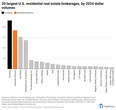British teenage boys aged 15 to 17 spend nearly 34 hours on average a week playing video games, a new report revealed. That’s almost five hours a day, seven days a week, and that’s only according to parents’ estimates.
The data was based on a survey of more than 1,000 parents of 7 to 17-year-olds, polled on Mumsnet, an internet forum for parents of children and teenagers. The research was commissioned by Ygam, an independent UK charity dedicated to preventing gaming and gambling harms among young people. The bulk of the group’s funding comes from GambleAware, a UK charity, with additional support from the UK gambling industry and other individual sources.
While boys in the UK are bigger gamers than girls, the average time spent gaming for all genders has jumped 3.5 hours in the past year, to 20.4 hours per week, up from 16.8 hours in 2024. The average time children are expected to spend in a UK secondary school, meanwhile, is 32.5 hours.
While these games often appear innocent to an observing parent, about half of parents noted gambling-like mechanisms in the games their child plays, including mystery boxes and loot boxes.
As these in-game microtransactions involve spending money for a chance outcome, in essence, it’s analogous to gambling. Almost half (41 percent) of parents expressed concern about this exposure at such a young age.
The fact that teenagers spend more time on hobbies like gaming than in the classroom is not, in itself, surprising. After all, most school days are finished by 5pm, leaving many hours for extracurricular activities. The data does, however, speak to the activity’s popularity among among young people.
“It is hard as a parent to manage it as there is so much peer pressure,” one parent of an 11 or 12 year old boy told researchers. “He was one of the last children in his class to get a console and really felt left behind as it was all that the rest of his class would talk about.”
Face-to-face time
Teens are also spending far less face-to-face time with friends than they used to. For 38 percent of young men, gaming is the main way they socialize, with 75 percent of parents reporting that their child played video games where they were able to interact with people they’re not physically with.
For parents, the social aspect of gaming culture can be a minefield. Fast Company recently reported on a wrongful death lawsuit filed against Roblox and Discord by the mother of a teenage boy. The 15-year-old died by suicide after allegedly being targeted by “an adult sex predator” posing as a child on the platforms.
Unsupervised contact with strangers via game systems is one of parents’ top concerns. “The chatrooms on these platforms cannot be monitored in the same way that games themselves can be,” another parent of a teenage girl told researchers. “There’s too much interaction with strangers which I definitely don’t like.”
“I have added parental controls to my son’s Xbox account and to his phone, but I don’t think it filters out enough dangerous content,” another parent of a young boy added. “I find him talking to strangers when I didn’t know he could. He’s now clear that he isn’t allowed to do that, but he’s 10. It should never have been possible in the first place.”
While parents also recognized the benefits of gaming for children, particularly in lowering stress levels and helping them to relax, the fear of the unknown increasingly eclipses those upsides.
“It’s important that families are supported to keep gaming enjoyable by setting boundaries, establishing healthy gaming habits, and using the available controls to ensure the content children are exposed to is appropriate,” said Helen Martin, interim chief executive of Ygam. “Education has an essential role to play – not just for young gamers, but also for the adults who care for them – to help safeguard children and keep pace with our rapidly evolving digital world.”







No comments